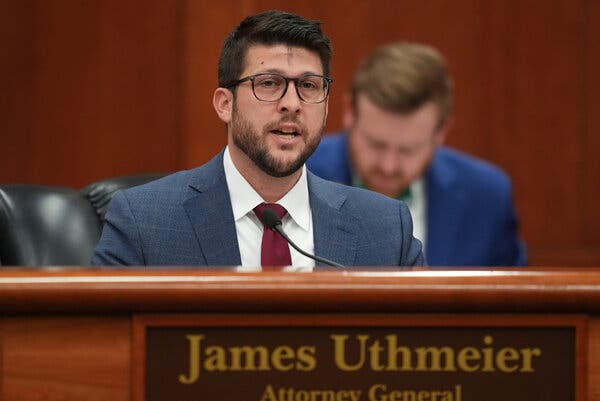US Supreme Court Dismisses Request for Preliminary Enforcement of Controversial Florida Immigrant Law
A plea from James Uthmeier, the Attorney General of Florida, to allow preliminary enforcement of a recently enacted state law that targets unlawful immigrants was dismissed by the U.S. Supreme Court on Wednesday. In April, a provisional injunction had been issued by U.S. District Judge Kathleen Williams, instigating the halt of the law. Uthmeier had approached the Supreme Court last month with a request for a suspension of this injunction, allowing for the enactment of the law till the time the legal proceedings around the injunction continued. However, his request for the stay was turned down by the highest judicial body.
This controversial law, instituted during a special legislative sitting in February, criminalized unlawful entry or re-entry into Florida by undocumented immigrants. This enactment was a part of a collective mission of Governor Ron DeSantis and Republican lawmakers to reinforce President Donald Trump’s attempt in controlling illegal immigration.
Still, Judge Williams believed the law, also known as SB 4-C, was potentially overstepping federal immigration enforcement authority. The law’s provision that necessitated imprisonment could potentially be in disagreement with federal authority, she highlighted. Dual prosecutions under both state and federal laws were possible, but the mandatory detention clause of SB 4-C limited federal law enforcement’s power to suggest pre-trial releases, consequently impeding federal courts’ capacity to carry out processes requiring defendants’ presence. Notably, even while federal immigration proceedings – which may decide on the legal presence of the defendant under federal law – are ongoing, state officials have the authority to initiate a prosecution under SB 4-C.
Uthmeier’s office, when seeking the stay, contended that the state laws were not preemptive but intentionally parallel federal laws. Florida, they argued, has been prohibited from implementing its statute, thereby adversely affecting its populace and infringing upon the state’s sovereign right to ensure their protection. According to them, the inability to enforce this law has allowed undocumented immigration to continue causing issues in Florida. They further claimed that in absence of the Supreme Court’s interference, the state and its residents would continue to be powerless to tackle the negative impacts of illegal immigration while the underpinning litigation navigates through the lower courts.
The Farmworker Association of Florida, the Florida Immigrant Coalition and two single petitioners raised objections to the law at a federal courtroom located in South Florida. They posited that as immigration enforcement lies within the federal purview, the law contravenes the Supremacy Clause of the U.S. Constitution.
An initial restraining order was executed to put a stop to the application of the law and was stretched further later on. Following this a more lasting preliminary injunction was put into place, which incited the state to appeal.
Lawyers representing the plaintiffs, during their brief opposing the request for stay by the state, centred much of the discussion around the preemption issue. They referred to a judgement from a Texas case in 2024, emphasizing that the Congress has developed a detailed system to regulate who, how, where, and under what consequences someone can enter the country unlawfully. The attorneys maintained that SB 4-C contradicts this extensive federal framework on every level. They explained that while Congress has given a diverse assortment of tools and broad discretion to federal officials to manage an array of national interests, SB 4-C aims to take away the control of criminal regulation of entry from federal discretion, forcing the state’s viewpoint.
Additionally, a group of judges from the appeals court located in Atlanta turned down a request for a stay in the previous month.
The law has sparked high levels of contention since its inception. In one unusual scenario, Uthmeier was held in civil contempt due to a letter he sent out to the police in April after the enforcement of the law was paused. The letter was deemed a violation of a directive to inform police departments that the temporary restraining order prohibited them from executing the law. However, some argue that this instruction should only apply to the defendants named in the ongoing case, not necessarily to law enforcement officers.

